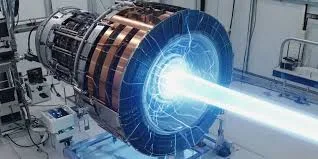
UFO History and the Scientific Quest
The history of UFOs, or Unidentified Flying Objects, is a fascinating and often controversial topic. Sightings of strange celestial objects have been reported for millennia, across various cultures. However, the modern era of UFO interest began in earnest with the 1947 “Roswell Incident,” where a mysterious object crashed near Roswell, New Mexico.
Key Events and Developments:
- 1947: Roswell Incident: The crash of an unidentified object near Roswell, New Mexico, sparked widespread public interest and speculation about extraterrestrial life.
- 1952: Washington, D.C. Sightings: A series of UFO sightings over the nation’s capital further fueled public fascination and government involvement.
- Project Blue Book: The U.S. Air Force conducted a study from 1952 to 1969 to investigate UFO reports. While many sightings were explained as misidentified aircraft, weather phenomena, or hoaxes, a small percentage remained unexplained.
- 1969: Project Blue Book Conclusion: The Air Force concluded that there was no evidence to support the existence of extraterrestrial vehicles. However, this did not deter public interest or belief in UFOs.
- 1977: Close Encounters of the Third Kind: Steven Spielberg’s film popularized the idea of encounters with extraterrestrial beings.
- 2017: Pentagon UFO Videos: The Pentagon released three videos of unidentified aerial phenomena captured by Navy pilots, reigniting public interest and government acknowledgment of the topic.
The Scientific Perspective:
Despite the lack of conclusive evidence, scientists and researchers continue to investigate UFO phenomena. While many sightings can be explained through known natural or human-made phenomena, there remains a small subset that defies easy explanation.
Here are some of the scientific approaches to UFO research: - Astrophysics: Astronomers study celestial objects and phenomena to rule out natural explanations for UFO sightings.
- Engineering and Aerospace: Engineers and aerospace experts analyze the reported characteristics of UFOs to determine if they are consistent with known technologies.
- Psychology: Psychologists investigate the psychological factors that may influence UFO sightings and beliefs.
- Biochemistry and Biology: Scientists explore the possibility of extraterrestrial life and its potential characteristics.
It’s important to note that while scientific research has provided valuable insights, the existence of extraterrestrial life and the nature of UFO phenomena remain open questions. The search for answers continues, driven by both scientific curiosity and public fascination.




